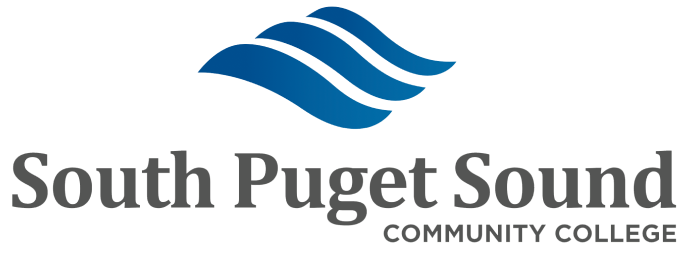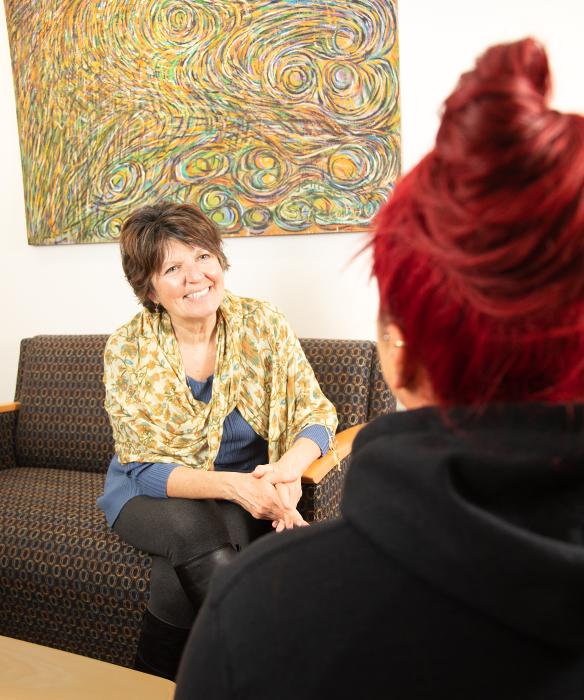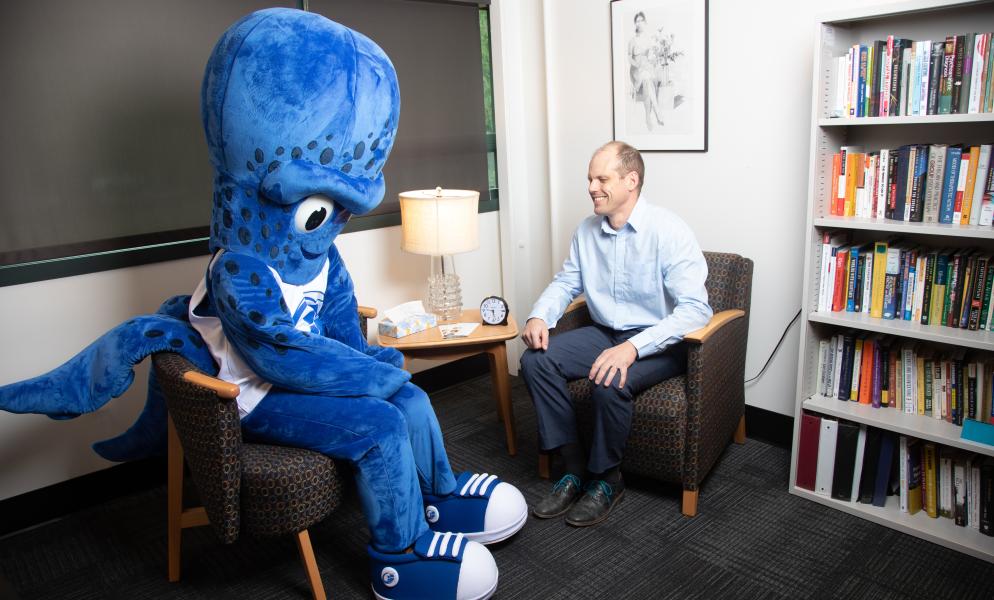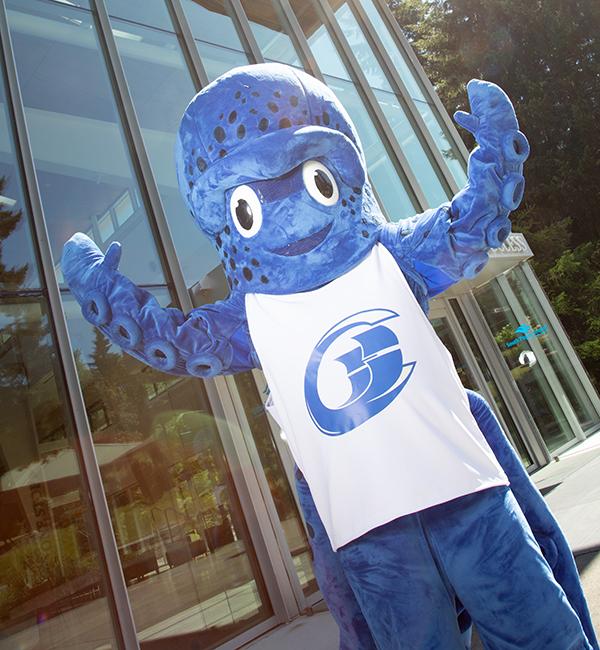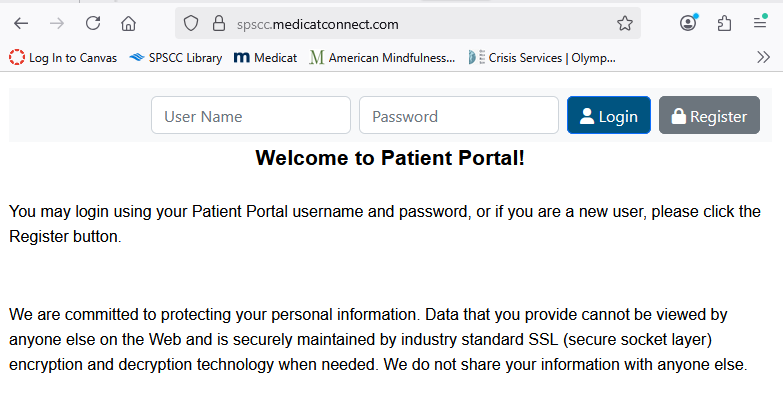What is Counseling at SPSCC?
Counselors with Counseling Services at SPSCC are professionals who hold a Master’s degree in Psychology, Counseling, or Education. They are trained to help people with personal and emotional issues as well as study skill support. A lot of times, the counselors at SPSCC help students by listening and problem-solving with the student.
How do I know if I need counseling?
There is no easy answer to knowing when one person’s struggles are such that counseling is needed. We recommend that you come in during our walk-in counseling times to talk about this question with a counselor. Talking with a counselor is confidential and completely voluntary.
Do I have to pay for Counseling at SPSCC?
No, you do not have to pay for counseling at SPSCC. This service is covered by your tuition and fees and is limited to current students.
What is the difference between the Advising Center and Counseling Services?
The Advising Center helps students plan their academic goals, including what classes to take, when to take those classes, or how to transfer to a 4-year college. Counseling Services is a place where a student can find help with personal or emotional struggles, concerns, or goals. Often academic goals and personal goals can be intertwined, and counselors will sometimes provide academic guidance in these situations. Most of the time, academic advisors have not received training to address personal or emotional issues and may refer a student with this type of difficulty to Counseling Services. Visit the Advising, Career & Transfer Center for more information.
How do I meet with a counselor or make an appointment?
For a first meeting with a counselor you have two options: Call 360-596-5306 to talk to a counselor directly and schedule an appointment. This generally includes a 30 or 60-minute appointment one-on-one with a counselor. Or, come in during the walk-in counseling times and meet with a counselor—this meeting generally lasts up to 20 minutes. At the end of this meeting, you and the counselor will decide together if you would like a regular appointment and schedule accordingly. For ongoing meetings with a counselor, this will be determined through a discussion between you and the counselor you meet with.
How do I cancel an appointment?
Cancel an appointment by calling 360-596-5306, or by contacting the counselor you are scheduled with directly. You can find each counselor’s contact information in the counselors listed below.
What do I do if I have to talk to someone right now?
You may come in for a walk-in meeting with a counselor if it is during walk-in times. See the Counseling Services contact information and office hours for the current walk-in times. If it is outside of these hours but still within the counseling hours, you can call or stop by the counseling office to see if a counselor is available. If it is after counseling office hours and you feel that you MUST talk to someone right now, then call the Thurston County Crisis line at 360-586-2800.
Will my counselor talk to my instructor, parents, or anyone else?
No. The Counselors in Counseling Services abide by a strict code of ethics that forbids them from talking to anyone about any person that they are helping. Occasionally they may consult each other about how they might better help students in certain situations; however, these discussions are kept in confidence as well. There are a couple of limitations to confidentiality. If someone discloses to us that 1) a child or dependent adult is experiencing abuse or neglect or 2) a person is intending to hurt themselves or someone else. In these situations, we need to break confidentiality because we are concerned that the student we are working with, or someone else, is at risk of harm. We encourage you to discuss any concerns you may have about confidentiality with a counselor—you can disclose as much or as little about your situation as you feel comfortable sharing. Confidence is only broken if it is absolutely necessary.
In some situations, students find that they want their counselor to share information. If you find that you would like your counselor to share information with someone else (a medical provider, instructor, parent, etc.), then we will have the student sign a Release of Information form authorizing what information to release, when to release it, and who it will be released to. We encourage you to discuss any questions or concerns you have about this process with your counselor.
